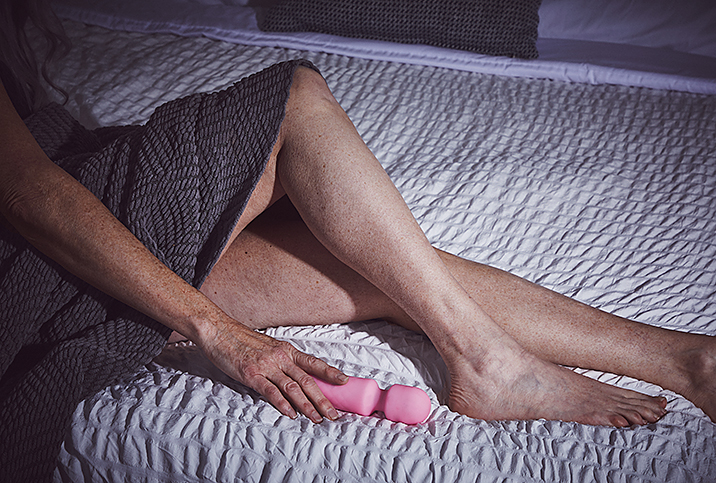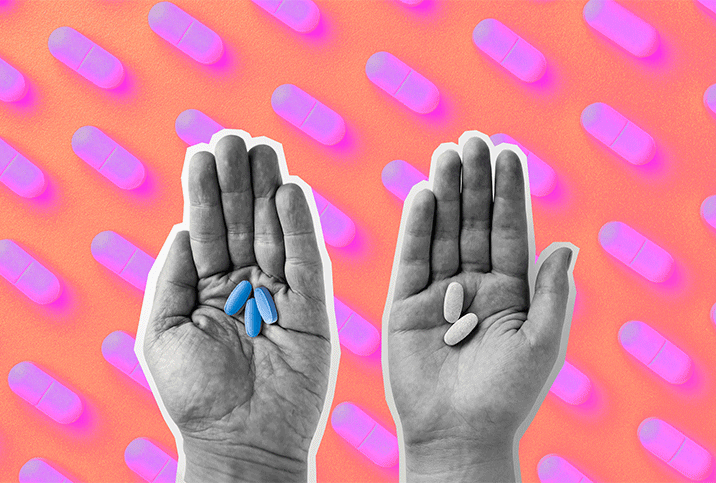What Men Need to Know About Menopause

Death, taxes and…menopause? Something like that. For women, menopause is an inevitable part of life that usually occurs between the ages of 45 and 55, though the timing is unique for each person.
"Many are aware of the typical and common symptoms, such as hot flashes, sweating and irregular menstrual bleeding. But fewer know that symptoms might also include vaginal dryness, vulvar dryness, lower libido and bladder problems, such as frequent urinary tract infections," said Gunvor Ekman-Ordeberg, M.D., an OB-GYN and a co-founder of DeoDoc Swedish Intimate Skin Care in Stockholm.
The rapid decline in levels of hormones, particularly estrogen and progesterone, can cause these side effects, but nothing fundamental about a person changes other than they no longer need to remember to carry a tampon in their bag.
Men who may have partners entering the menopausal transition should become more educated about the subject to lend support and understanding.
Hot flashes are common (but not inevitable)
The stereotypical image of a menopausal woman ripping off layers of clothing isn't too far off. Most women experience at least some sort of body temperature change as a decline in estrogen causes the body's natural thermostat to go off-kilter.
"Seventy to 80 percent of women will experience hot flashes during menopause," said Leah Millheiser, M.D., an OB-GYN with Stanford Health Care in Northern California and an expert in menopause and female sexual medicine. She is also the chief medical officer at Evernow, a membership-based menopause telemedicine provider based in San Francisco.
Some lucky people won't have hot flashes. It's not understood why, but some research suggests that people who smoke and have a higher body mass index (BMI) are more likely to experience hot flashes. There seems to be a link between hot flashes and racial background, too: Black women are the most likely to report hot flashes, while Asian women are the least likely.
Menopause may take years
Many people don't realize menopause is a marathon, not a sprint. Officially defined as going at least 12 months without a period, menopause occurs at an average age of 51.
Menopause is the conclusion of a transitional time known as perimenopause, which means "around menopause" and can last as long as four years, though some women experience this stage for just a handful of months. It's important to remember that the intensity, severity and duration of menopausal symptoms vary in each woman, Ekman-Ordeberg said.
In an Evernow survey of more than 100,000 women, the most commonly reported symptoms of perimenopause included brain fog, weight changes, sleep disruptions, mood swings and fatigue. Perimenopause is also marked by irregular periods that are not entirely absent.
Other reported symptoms included hot flashes, night sweats and joint pain. The latter occurs because as estrogen levels drop, inflammation increases, which can cause pain and a higher risk of osteoporosis and osteoarthritis.
Risk of infection and STIs
Women going through menopause may be more prone to infection and at a higher risk of contracting sexually transmitted infections (STIs). This is one aspect of menopause that isn't regularly talked about, but it's important to note, especially if you and your partner are nonmonogamous. As Millheiser noted, during menopause, vaginal pH increases, which can contribute to increased bacterial infection, such as bacterial vaginosis. Urinary tract infections (UTIs) also may increase.
Menopause causes the vaginal tissue to become thin—again, owing to a drop in estrogen—and therefore, the vagina is more vulnerable to tears and tiny abrasions that can cause outside infection, including STIs.
Insomnia and night sweats are common
You may hear your partner say they're having trouble sleeping, as insomnia is a common side effect of menopause. Both estrogen and progesterone steeply drop off during menopause, and progesterone is actually a sleep-inducing hormone. This change in hormones, when paired with night sweats, can make sleep difficult and lead to daytime fatigue.
Sex isn't over, though it may be different
Sex during and after menopause is still viable, and it's unfortunate so many people think otherwise.
"Sex for a woman doesn't 'die' after menopause; it just changes but can still be as good with the right interventions and a supportive partner," Millheiser said, acknowledging that changes in sexual function such as low libido, painful sex and difficulty achieving orgasm can occur.
Some fun interventions can make sex fulfilling. Think about using vibrators and switching to silicone-based lubricant, which lasts longer and is more effective at reducing friction than water-based lubes.
"Responsive desire may become the new norm," Millheiser said, meaning your partner may not start out in the mood for sex but will get there. She suggested heavy foreplay or what she called "before-play," which could include reading or watching erotica, or masturbation—whatever gets you in the mood—before the partner even enters the room.


















